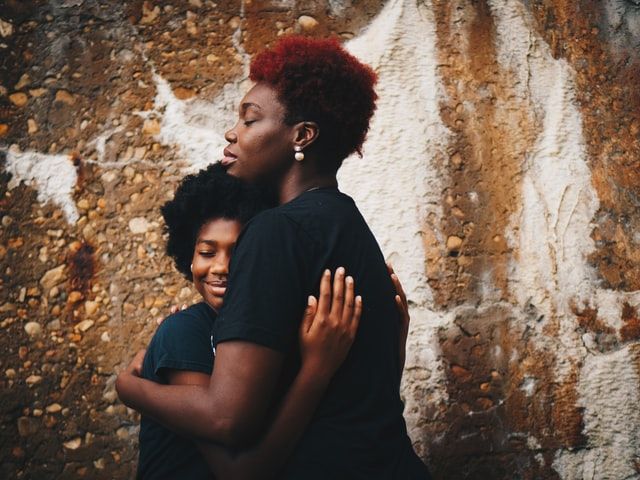With anxiety levels, low self-esteem and depression reaching an all-time high, how can we help foster more self-care, self-reflection, and growth in children and teens?
Self-improvement and personal growth aren’t just areas reserved for adults looking to enrich their lives or enhance their career prospects. They’re important aspects of life that can help us to develop skills and better understand ourselves at any age.
According to the latest figures released by Place2Be, 95% of staff at schools are seeing an increase in anxiety levels among students. 86% have noted an increase in low-self esteem, 76% in depression, and 68% in anger. For secondary school staff, 72% have noticed an increase in self-harm, 61% in suicidal thoughts, and 56% in eating difficulties.
With less than a quarter (23%) feeling they could regularly access specialist support for students who need it, now more than ever we need to find ways to support children and teen’s mental health and wellbeing needs, as many struggle to adjust to the changes brought abought since the first lockdown began.
Principal Educational Psychologist at Place2Be, Julia Clements, commented on the importance of reflection to help support continued growth.
“Despite a difficult couple of years, many people have continued to grow and develop, for example, adjusting to new ways of working, learning and socialising. In order to keep growing, it’s good to sometimes press pause and reflect on the personal qualities that have helped us to cope and even thrive.
“As well as our own strengths and qualities, it can also be useful to reflect on how others have helped us to grow and how we have helped others, too. This will help us to continue on our own personal growth journey, and sustain us when things get tough.”
To help you get started, we share seven simple ways you can support your child in their journey towards personal and emotional growth.
1. Celebrate and recognise growth
Recognising physical changes is easy. How can we not notice how much our kids have grown and changed as the years go by? But emotional growth can often be overlooked. As Place2Be explains, it’s important to recognise and praise emotional growth. “This could be letting them know how proud you are when they have learnt to walk away rather than fight with a sibling, or how they have learnt to ask others to play when they used to be too shy to do so.”
Through recognising and acknowledging the positive changes and behaviours our children are showing, we help encourage them and can help support their growth.
2. Model the life skills you want your child to develop
Experienced systemic facilitator and life coach, Franziska Cecchetti-Pretsch, shares how we can support and empower children by modelling life skills they could benefit from developing.
“The overall aim is always to strengthen children and young people in their core so that they can access inner resources throughout all their life and are empowered to grow and evolve. It’s about holding space for them from an early age to find their own solutions and to be creative and curious about their own way of living. This needs adults around them who show an interest in their individual personalities and world views.
“We as adults are role models in how our children learn to deal with stress and any issues in life. So the more we work on our own resilience and coping strategies, the healthier also for our children and the whole family. Encourage them to give their own ideas without fear of being judged or not taken seriously.”

3. Practice positive listening
A staggering 96% of us think we’re good listeners, yet according to research, we only retain about half of what others say. The main reason behind this? We tend to think about what we are going to say - or start making assumptions when we should still be listening.
Coach Jo Thompson explains more about how we can switch from offering unsolicited advice to listening to our teens to really help support them as they thrive, grow, and be happy.
“As grown-ups, we are always watching the young people around us for signs of discontent: a child is afraid to go to bed at night, or won't go to school; a teenager can't get down to work and is always on the sofa, or who is doing so much work that they never rest on the sofa.
“This discontent can start to cause friction within homes, as parents try to second guess the problem and advise young people on how to address things - and the children push back. This is not because they don't want to change. They just may not be able to do it in the way that works for the adult.
“Focus on the great job you have done so far in parenting or teaching them, and then help them continue to grow (and grow yourself!) by changing how you approach the matter. Give them space rather than your opinion.
“Try showing them that you are listening to their problems by resisting the urge to advise. Instead, repeat the problem they are telling you about, repeat what you understand to be the issue and watch them open up and give you some more about it. If they say things out loud, not only do you get more clues about what's going on with them, but they also start to process things and grow into working out the way forward for themselves.”
4. Praise their willingness to try (not just their successes)
Successes big and small are easy things to recognise. Who wouldn’t want to congratulate their child for doing particularly well on a test in a subject they particularly struggle with, or to celebrate a good report card or making it onto a sports team. But these aren’t the only times we should be recognising and celebrating children’s efforts.
Whether it’s trying a new food, activity, experience, or pushing themselves to make a new friend, acknowledge and praise their willingness to try something new rather than to stick with what they are good at or already know. This can help fodder a sense of confidence and help them continue to develop and grow.
Encourage and support kids with these 50 affirmations to help kids build confidence.
5. Support children and teens in developing emotional literacy and emotional intelligence
Research suggests that emotional literacy and emotional intelligence can lead to stronger relationships, better health, and even higher academic achievements. Referring to our ability to recognise, understand, manage, and express our emotions in a healthy way, emotional intelligence is how we deal with our emotions, while emotional literacy is how we communicate these emotions and understand them in not only ourselves but others too.
Helping children to recognise how they are feeling, find healthy ways to manage their emotions, and take charge of how they are feeling (rather than allowing themselves to be controlled by their emotions) can all help. You can try this by:
- Acknowledging their emotional responses without judgement.
- Helping them to label how they are feeling. This can be the first step towards understanding how they feel, and finding positive or healthy ways to deal with this.
- Encourage them to talk about their feelings – but don’t push them to speak if they aren’t ready. Let them know that you (or any other adult that they know and trust) are always willing to listen and help when they feel ready.
- Model healthy ways of handling your emotions. Children often learn more from what we do than what we say. Find out more about how you can build emotional intelligence.
6. Encourage them to create a ‘support balloon’
Try the Place2Be ‘Support balloon’ activity. Designed to help kids learn to think about their support network, it’s simple to do. You’ll just need some paper and coloured pencils or pens. Why not try making one yourself with them to show them how it’s done?
7. Consider working with a youth coach
Youth coaching encourages personal development whilst providing support and guidance. Designed to help build confidence, encourage goal setting, teach stress management tools, and help teens learn how to discuss difficult issues, youth coaching can be a positive way to provide extra support for children and teens by providing an impartial, trustworthy person who can offer guidance without fear of judgement.
We spoke with personal growth and wellbeing coach, Anita Sharma, to find out more about how youth coaching can help teens and pre-teens to grow and flourish.
“The teen and pre-teen years can be really tough for young people. The journey to adulthood is a complex one, and it can be really hard for them to navigate without some help and guidance. They might be plagued by anxious thoughts, have low self-esteem and even be struggling to understand who they really are or what they want to become as an adult. Youth coaching is a particularly effective way to support your teen through this time of transition, helping them to cultivate the kind of life they want.
“Adopting a positive mindset can be a game-changer for anyone working on their personal growth, but this is particularly important for teens. With the right coaching, teens can learn to focus on the positives and are less likely to be stressed or compare themselves to others. They’re more likely to get out of their comfort zone, take educated risks and grasp new opportunities. This all combines to help them fulfil their potential and live their best life.
“Youth coaching can help teens to build effective social skills; helping them to develop healthy relationships both now and in the future. Skills such as feeling comfortable introducing themselves to new people, standing up for themselves and assertiveness can all be vital skills in the adult world as well as during the teen years.
“A youth coach can help your child is by teaching them how to silence that inner critic. Youth coaching can support teens by building their self-confidence and resilience, whilst also teaching them how to let go of the past, to focus on the positives and be thankful for what they have. They will learn to be proud of who they are, become their own cheerleader in life and stop comparing themselves to others.”
Resources for children and parents
If you’re worried about your child or teen, it’s important to remember it’s always ok to ask for help. Check out the articles below to find advice and guidance in supporting your child or teen through common worries and concerns.
Self-esteem
- How to help kids build self-esteem
- Self-esteem building tips for kids
- Find out more about low self-esteem, what causes it, mental health links, and how you can raise your self-esteem at Counselling Directory
- Discover more about how self-esteem impacts your life at Life Coach Directory
Depression
- Depression and anxiety in children
5 ways to help kids with depression - Signs of depression in children and young people
Anger
- 5 tips to help children manage anger
- Childhood anger and therapy
- Helping your child with anger issues


Comments